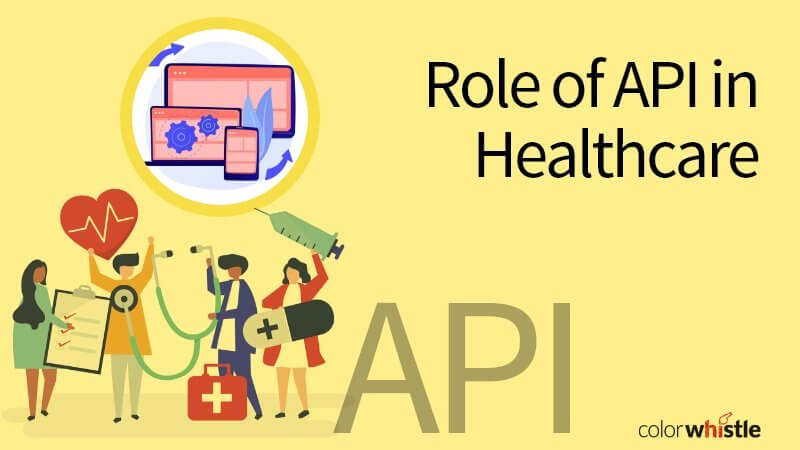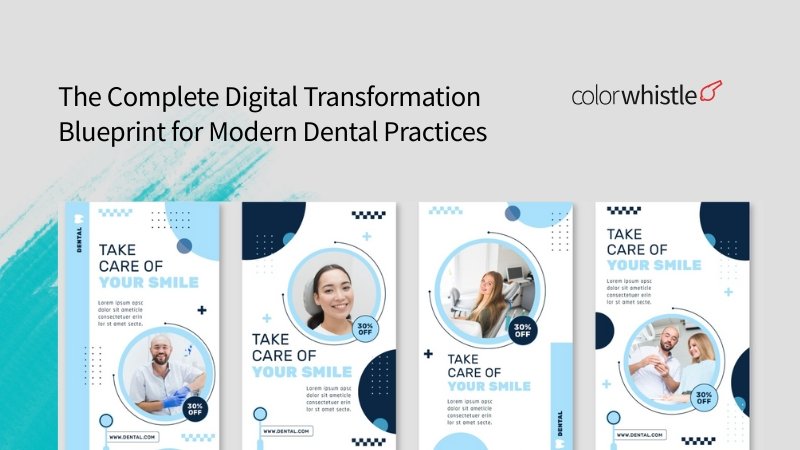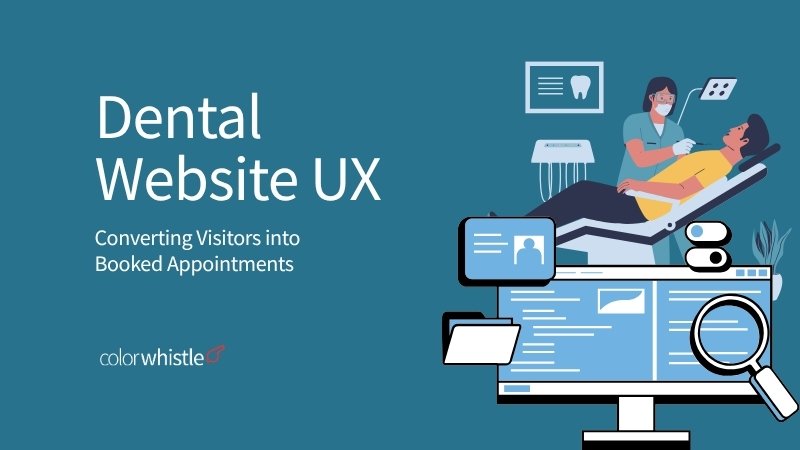AI Summary
A Quick Summary of API Role and Use Cases in Healthcare
This serves as a practical guide for healthcare professionals and developers to understand API integration's impact on modern healthcare websites. The key insight: APIs transform healthcare portals into dynamic ecosystems enabling secure, real-time data exchange and patient engagement. The blog covers essential API uses like telehealth, scheduling, insurance claims, and remote monitoring, illustrating how APIs enhance operational efficiency and patient experience while ensuring HIPAA compliance. It details how to choose the right API based on features, documentation, and support. Readers will learn to leverage top healthcare APIs to boost service delivery and innovation in healthtech.
In 2026, healthcare websites are no longer static portals, they’re becoming dynamic, connected ecosystems powered by APIs that fuel smarter patient engagement and operational efficiency. With the rapid acceleration of telehealth, patient portals, remote monitoring, and personalized care delivery, APIs are now essential for enabling secure data exchange, real-time interoperability, and seamless integration with digital health tools.
APIs help healthcare providers deliver modern services like appointment scheduling, teleconsultations, wearable data sync, and payment processing, all while adhering to evolving compliance standards such as FHIR and HIPAA.
As patients increasingly expect 24/7 access and personalized digital experiences, API integration isn’t just a backend enhancement, it’s a core driver of competitive advantage in healthtech.
What is an API in healthcare?
An API (Application Programming Interface) in healthcare refers to a set of protocols, standards, and tools that allow different healthcare applications and systems to communicate with each other and interchange data seamlessly. When it comes to healthcare integrations, providing top-notch security to the patient’s data is a must. A versatile healthcare API integration with HIPAA compliance pays off!
Through high-performance API integrations, you can virtually contact the patients, note down the appointments, collect the consultation charges, send reminders, and provide digital healthcare experiences from anywhere at any time without any disruptions.
In this blog, we have talked about the importance of API, how to integrate API, and the top healthcare APIs as well. Our experience with healthcare professionals and knowledge of API development has enabled us to write a detailed blog about the role of APIs in healthcare.
Let’s dive right in.
How Does API Work on a Healthcare Website?
APIs are a set of protocols that use the concept of Platform as a Service (PaaS) and allow applications to communicate with each other using a simple set of commands.
The easiest way to understand the workings of APIs is to think about a common scenario between a customer, a waiter, and a restaurant. A customer places an order through a waiter. The waiter then takes down the order and conveys it to the cook. After the cook prepares the food, the waiter delivers the food to the customer.

Source:Auth0.com
This is exactly how an API works. The customer here is the healthcare website developer, the waiter is the API, and the cook is the webserver.
APIs act as messengers delivering one application’s request to another and return a response in real-time. If you like to explore more on the importance of API integration, then take a look at our blog.
Also Read
Healthcare API Use Cases
1. Insurance Eligibility & Claims APIs
Insurance Eligibility and Claims APIs enable real-time verification of patient coverage, benefits, and payer rules before services are delivered. They reduce claim rejections, speed up reimbursements, and improve financial transparency for both providers and patients.
2. Telehealth & Video Consult APIs
Telehealth and Video Consultation APIs allow seamless integration of virtual care features such as secure video calls, chat, and remote consultations directly into healthcare websites or apps. These APIs support scalable, compliant, and on-demand care delivery across geographies.
3. Scheduling & Reminders APIs
Scheduling and Reminder APIs automate appointment booking, rescheduling, and patient notifications via SMS, email, or app alerts. They help minimize no-shows, optimize provider availability, and enhance the overall patient experience through timely communication.
4. Bridging the Gap Between Healthcare Providers & Patients
By integrating API with your IoT devices, your patient’s data will instantly be reflected in your dashboard. Then, based on the record, you can provide treatment. This treatment-based information will be displayed on the platform of patients and saved in your system. This cuts the overhead costs of decision-makers and improves treatment efficiency.
Benefits of Integrating API with Your Healthcare Website
Before learning how to choose the right API for your healthcare system, let us explore the benefits of integrating healthcare APIs. On account of the API integration, you can experience various perks like patient satisfaction, cost-effectiveness, security, making work easier, innovative practices, and many more.
- Healthcare APIs make the lives of both patients & professionals easier and cut down the overhead costs. It allows to monitor the health conditions of patients and provides more or less accurate data. Patients can share this data directly with their physicians. The healthcare providers can access the data and begin with the treatment
- APIs when used in healthcare serves the purposes of doctors, scientists, patients, and developers on the whole. Doctors can use it innovatively to get connected with patients, scientists can leverage it for medical research, patients can use it for assessing their health conditions, and developers can use it for building intuitive healthcare software
- The use of APIs can open up the closed doors for innovations and implant solid changes in the revolution of the healthcare services sector
- Patient’s health records are for sure sensitive. APIs take up the responsibility for securing all your data. It encrypts the data while sharing and blocks the access of unauthenticated users. Moreover, it records the activities like who accessed, which data sources had been viewed/edited/removed, at what time it all happened
Also Read
How to Choose API for Your Healthcare Website?
There are many APIs in the market for various purposes. Based on your requirements you should choose the right API. Here, we have listed a few important things to look for in an API before integration.
1. API Features
First, be aware of the features you need and filter your selection based on that.
2. Clear documentation
It’s crucial that documentation should clearly make readers understand the platform, the working, and others. For example, the TVmaze API provides clear documentation with sample code, making it possible for users to implement coding quickly.
3. Data Formats
It would look good if the data were expressed in various lighter and easy-to-use formats including XML, JSON, etc. This type of lighter data format makes it easily readable. Research your requirements and target audience, and choose the right format.
4. API Limits
Sometimes, in order to avoid abuses by API customers, it limits systems open to the public. Based on the type of customers these limits would be flexible. Before managing the API limits, you must know how to administer them in such a way that we do not exceed the limit. This prevents you from complexities.
6. Programming Languages
Every API is complex in its own way. Therefore, it is important that your API provider gives examples of code in the programming language or a library. Something similar to, Google Analytics and its large number of libraries has the most updated information about the latest used programming languages.
7. Community & Support
The API provider should provide support forums, and that the community should be active. One of the main reasons for eBay API’s success is, because the application operates as a platform, in such a way that it greatly facilitates its use both inside and outside of eBay.
Keep this checklist as a reference and choose the perfect API for your healthcare website.
Top Healthcare APIs in 2026
When it comes to integration with user-friendly resources, API would top the list. Below, we have listed the top APIs that can be a great help for hospitals, clinics, and other medical centers.
1. FHIR-First Interoperability APIs
Fast Healthcare Interoperability Resources (FHIR) has become the de facto standard for healthcare data exchange, powering clinical data sharing, patient access, claims, and payer-provider interoperability across systems like EHRs, portals, labs, and apps. Major healthcare vendors (Epic, Cerner, Allscripts, NextGen, etc.) now expose FHIR endpoints that support modern digital health use cases and compliance with global standards.
2. Cloud-Native Healthcare Platform APIs (Google / Azure / AWS)
Managed health-oriented APIs like Google Cloud Healthcare API, Microsoft Azure API for FHIR, and AWS HealthLake / Health Data Services provide scalable, secure, and standards-compliant APIs for handling clinical (FHIR), imaging (DICOM), and HL7v2 data in the cloud.
Native support for FHIR and HL7 standards
Secure data storage and search across clinical and imaging data
Integration tooling for analytics, AI, and cross-system workflows
Cloud scalability and compliance controls (HIPAA, HITRUST etc.)
3. Unified EHR / Integration Platform APIs (e.g., Redox, Rhapsody / Corepoint)
Platforms like Redox and integration engines such as Rhapsody (SMILE Digital Health) continue to play a critical role in 2026 by providing unified APIs that normalize communication across disparate EHR/EMR systems, telehealth platforms, billing services, and ancillary systems, handling both modern FHIR and legacy standards (HL7v2, X12).
4. Human API
Human API is a consumer-centric health data platform that integrates with 90% of US hospitals and over 300+ wearable devices and fitness apps. It allows patients to share their health data with insurance providers, companies that provide healthcare advice, and others. By making the consumer’s health data liquid, this API allows consumers to take control of their data.
5. Doximity
With over 70% of U.S doctors, NPs, physician assistants, PAs, pharmacists, Doximity has become the largest community of healthcare professionals. 83% of physicians say they have better patient pick-up rates using Doximity’s Dialer feature. This API is supported by the HIPAA security system through which the calls between you and your patients are encrypted and are not recorded.
6. Drchrono API
DrChrono API is an intuitive healthcare API through which you can integrate your entire workflow including patient scheduling, patient engagement, medical billing, and much more. It’s the #1 mobile EHR as voted by Black Book. It is the #1 EHR platform to integrate with iOS devices and desktops.
Looking for Healthcare Digital Services?
Seize and experience the transformative impact of healthcare digital services with ColorWhistle.
Bottom Line
With API integrations, you can handle everything without intervening manually. As APIs connect with new systems and provide innovative plus virtual healthcare solutions, you can effectively provide a better experience to your patients.
Develop your healthcare website with API compatibility to capture the attention of more patients. Also, you can personalize the API as per your preferences and requirements.
To build custom APIs, take assistance from our proficient healthcare developers at ColorWhistle. We have mastered the end-to-end process of API integration and healthcare web development that includes managing, monitoring, and monetizing. Also, our developers are experienced in developing high-performance custom APIs, open-source APIs, WordPress REST API, and third-party APIs.
To get in touch with us, all you have to do is send us a message or give us a call at +1 210-787-3600. We are happy to build patient-centric API solutions for your healthcare website!
If you have any questions regarding our healthcare API development services, let us know in the comments below. We are ready to respond to you.






Awesome blog! Your blog is very informative for everyone who needs clinical trial data.